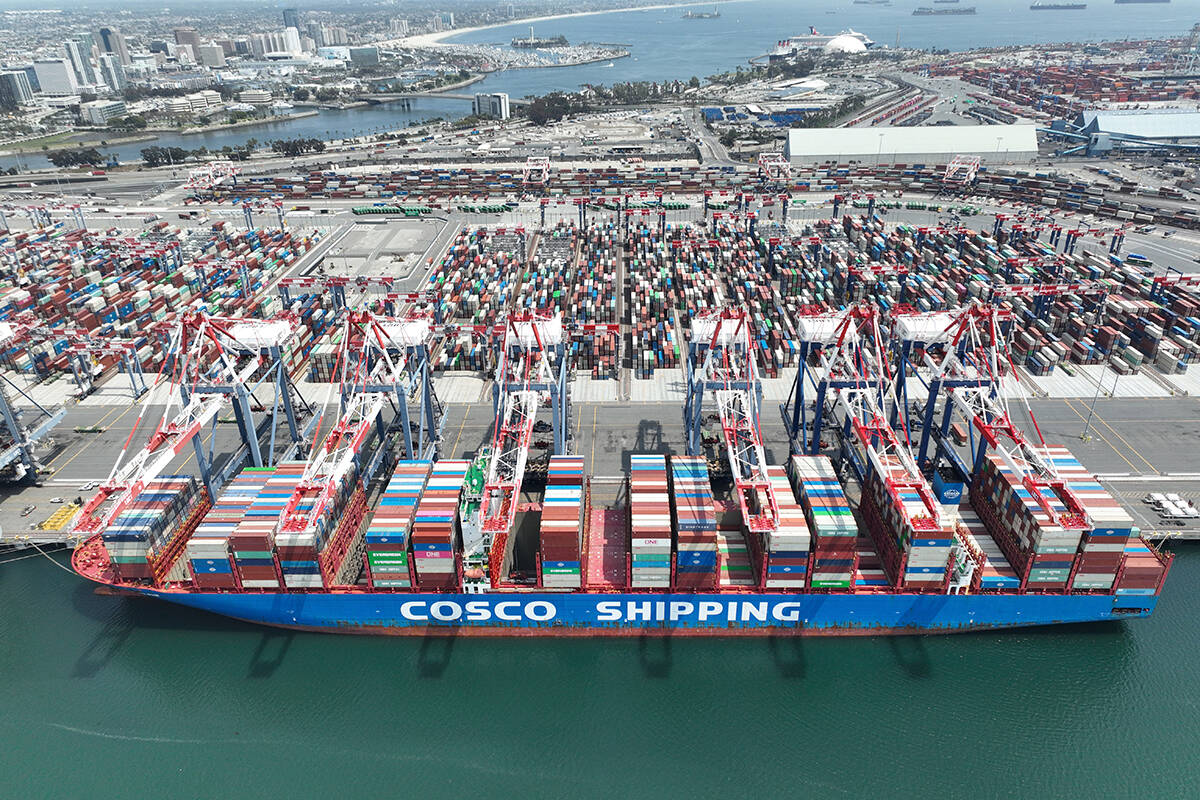It is 7 p.m. and a careful consumer worried about a restless sleep, sucrose intolerance and pesticide residue plays it safe, ordering a sugar-free drink, an organic salad and a decaf coffee.
The consumer may not actually be receiving what is expected. Federal rules now allow:
- The sugar-free product to contain up to 0.5 percent sugar.
- The decaf coffee to contain up to three percent caffeine.
- The organic food to contain up to five percent non-organic.
Likewise, high grade corn may contain up to two percent foreign material and trace levels of unapproved pesticides may be present in the food system without fear of retribution.
Read Also

U.S. softens fees on Chinese shipping
The U.S. starts charging new fees on Chinese ships on Oct. 14. What are the ramifications for their ag exports?
These are examples provided in a BioteCanada discussion paper submitted to the federal government in December 2002 in favour of diluting Canadian “zero tolerance” regulations for unapproved trace elements. The industry lobby wants rules changed to allow small amounts of unapproved materials in food products without repercussions.
There is no way to guarantee purity, it argues.
“Unintended trace levels of foreign material are common and well accepted in society provided there are no safety concerns,” the biotechnology lobby said in a paper submitted for discussion by Ottawa’s regulators Dec. 19, 2002.
Although some key trade customers, Japan and the European Union among them, have set trace element regulations at one percent or lower, Canadian officials argue that existing testing technology does not allow for that level of precision.
During debate over creating a voluntary labelling standard for Canadian products containing genetically modified material or derivatives, a government-sponsored, industry-dominated committee decided that five percent GM content would be the trigger for the requirement for labelling.
Below that threshold, there would be no requirement to claim GM content.
The New Democratic Party health critic said that would be like labelling 4.9 percent alcohol beer alcohol free.
















